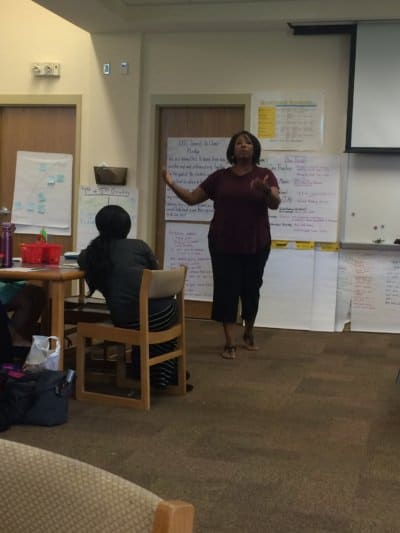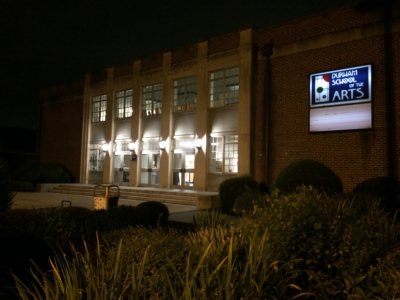
The State Board of Education’s Aug. 4 decision to reject five of the 13 charter school applications that were earlier this year approved by the N.C. Charter School Advisory Board led to a resolution of protest from the advisory board.
The resolution, posted Aug. 9, resulted from frustration that the board’s process of reviewing 28 charter school applications was taken for granted by the state board, said CSAB’s vice chairman Steven Walker, who also is the general counsel and policy director for Lt. Gov. Dan Forest. Advisory board members — who are responsible for narrowing the field of applicants to those schools that are fit for operation — feel that the state board’s rejections undermined the work of the advisory board, Walker said.
“There was a lot of effort and a lot of time that was put into [the review process], and I think that was kind of frustrating to see,” Walker said, stating that all members of the advisory board are charter school experts with strong resumes. “We spent … about 30 hours in a room talking about these things and interviewing people.”
CSAB members sifted through more than 6,600 pages of applications, and traveled across the state to meet with applicants, Walker added. There was “all the time we spent reviewing the applications beforehand,” he said, noting that the state board spent much less time studying the charter proposals.
But the state board’s decision to turn down some of the applications was based on concerns about budget and education plans — issues that had been questioned by the advisory board, said state board member Becky Taylor, who also acts as a nonvoting member of the CSAB.
“My concerns were about dialogue that indicated one way of going with the vote, and then when it came to the vote, it was like everybody forgot what they said,” Taylor said of the CSAB’s applications review. “And so I wasn’t sure what that was all about. I do trust the [advisory board] because we do have experts there, and we do rely on the experts, but I just did not hear their discussion matching up with their votes.”
The state board takes such concerns seriously, given the risks of approving charter school plans that are potentially unstable, said Bill Cobey, who chairs the State Board of Education.
“If a school fails, we’re the ones who have to deal with that failure, which involves expensive work on the part of staff, and ultimately ends up in court action,” Cobey said. “I don’t think that anybody on our board wants to be party to any proposed charter school that is likely to fail. And I think that’s the bottom line.”
“I’m a solid supporter of charter schools, and I think it damages the charter school movement when charter schools fail,” Cobey continued. “We’ve had some significant failures. Not to mention the cost to the state in terms of millions of dollars, and of course the cost to the young children who have gone to those schools and not received a proper education.”
But Walker said fresh ideas are essential to improving education for all students, and public charter schools have a record of accomplishment that should not be dismissed.
“Growing by eight schools a year is not enough, not when charters are outperforming public schools by a margin of about 9 percent,” Walker said. “We need schools that provide competition. … If you’re a traditional public school, and you might lose students to a charter school, you’re going to up your game. Competition helps.”
The charter schools rejected by the state board were approved by the advisory board by significant margins: Addie C. Morris Children’s School, by an 8-3 vote; Bonnie Cone Classical Academy, 6-3; Emereau: Halifax, 6-4; Kaleidoscope Charter High School, 7-3; and Ridgeview Charter School, 7-2.
All proposals were reviewed thoroughly by the CSAB, and those members who voted against the applications were comfortable backing the advisory board’s final recommendations, Walker said.
Six of the eight applications that the state board approved received unanimous support from the CSAB, while the two others received majority votes, Cobey said.
Cobey said rumors were untrue suggesting that the state board wants the CSAB to recommend only those charter applications that receive unanimous support. Additionally, he said, if the state board rejects a charter’s application one time, it does not prevent that charter operator from seeking and gaining approval in another year, saying every review is treated separately.
Walker disagreed, saying that the state board’s actions may affect how charters are approved in the future.
“I’d like them to reconsider the schools [they denied],” he said. “But that’s their prerogative. The way that the process works, the way that the statute works, [the state board members] approve the charters. But that was the point of the [CSAB] resolution. That [the state board] should be comfortable with what we recommend. Because we’ve got [experts who] know this stuff better than anyone else.”




